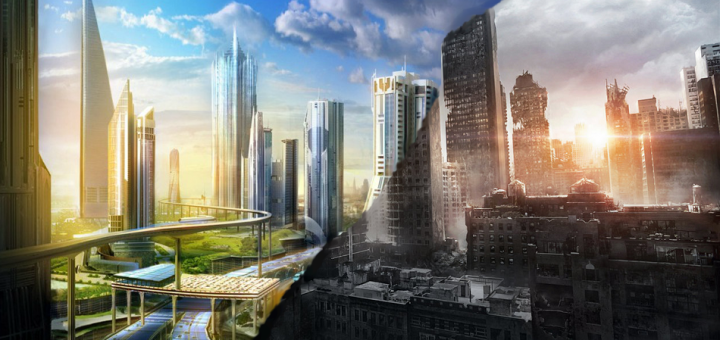
Utopias & Dystopias
Since the beginning of time, there have always been two parallel scenarios that we’ve our future world in. The optimists feel comfortable with the idea that we’ve been moving towards a utopia, while the more critical among us lean more towards Dystopias with their beliefs about the future.
This topic was particularly interesting for me as it’s always been somewhat of a debate between people, and the general opinion has always been pretty strongly divided. What makes this debate even more interesting is just the sheer amount of art and entertainment that has been produced about it. There have been countless movies, books, TV shows, and even songs about how we look at the future and artists have not hesitated in sharing how they imagine the future to be.
There are also even some divided opinions about whether we already live in a utopia or a dystopia, people have different ways of looking at the current world and while some might encourage focusing on the little beauties around us, others might call it immoral to believe the world is a good place when there is so much suffering among the people that are less fortunate.
There is then another big question of, if a utopia was somehow possible, would we as humans actually be content in that Utopia? Theoretically, our need for contrast to experience things would make a utopia a place of dullness and suffering. There have been strong arguments that comfort, luxury, and barrierless happiness do not stay a positive thing for a longer period of time due to human nature.
My way of approaching this question has always been more of a neutral way. Seeing all the compelling arguments about both utopias and dystopias for the present and the future has made me more open to both sides of the arguments.
What happens when our reproduction is brought into question?

The Handmaid’s Tale is a series based on a Margaret Atwood’s novel of the same name. It displays a dystopian society in which fertile women are forced to bear children for the wealthy. Nobody truly seems happy about their situation, and how could they be?
There is no happy ending for our protagonist; likewise, there is no happy ending for nearly any of the women. Both the book and the show, for many women around the world, are reminiscent of a horror story; a story many women live out in real life, being forced to carry a child that was never their choice.

Despite the series being called Utopia, it shows more of a dystopia – a perfectly normal world sinking into disrepair, with not much available to stop it.
But What About Not Being Able To Have Children At All?
Utopia (2013) is a TV show that aired on Channel 4 in the UK. The Big Bad of the series is an organization called The Network who believe the world is overcrowded, with dwindling resources, and their plan to combat that is to forcibly sterilize the population, leaving only a small percentage fertile.
While their plan is to sterilize the population through a vaccine, there have been countless stories of Indigenous women being forcibly sterilized, not informed about what’s being done to them. Another horror story that’s far from fantasy for many women.